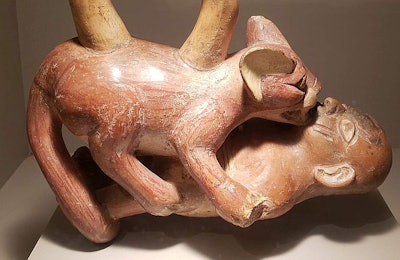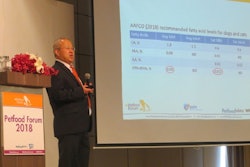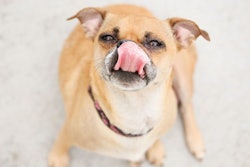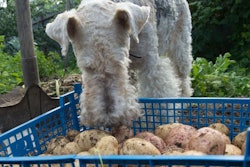
Cats have a long history of reverence on the west coast of South America. In the pre-Hispanic religious beliefs of the region, cats represented life on the surface of the world, while birds related to the heavens and snakes to underworld, according to displays at the Larco Museum in Lima, Peru. The cats revered by the Chimu, Moche, Inca and others weren’t house cats (Fievel Mousekewitz’ father in “American Tail” was partly right, there were no house cats in America before European colonization). However, modern inhabitants of what is now Peru still make sacrifices to keep their cats healthy.
The current form of sacrifice is mostly in the form of money. Although superpremium, therapeutic pet foods cost far more than conventional varieties, Peruvians are willing to pay more to keep their pets healthy, said Victor Suarez, DVM, veterinarian at Icaza Veterinary Clinic. A few patient’s owners may hesitate, but after seeing a positive change in their dog or cat’s condition, they generally become regular customers.
Humanization drives Peruvian therapeutic pet food demand
Demand has been steady and growing for dog and cat foods that address conditions ranging from skin irritation and allergies to kidney problems, Suarez said. Most people who buy the therapeutic pet foods do so following a veterinarian’s recommendation. The doctor’s order may mean sacrificing some money, but pet owners now tend to view that in the same way they view taking their kids to the doctor.
Suarez’ clients tend to see those therapeutic pet foods as means to extend the length and quality of their pets’ lives, he said. As in the rest of the world, Peruvians increasingly consider pets to be members of the family, and therefore people don’t balk at buying a better life for their cat, even if it isn’t a Chimu diety.

















